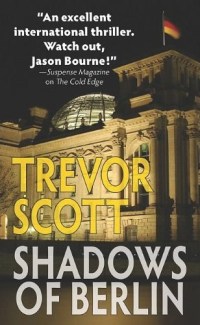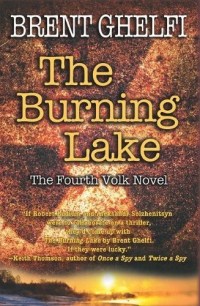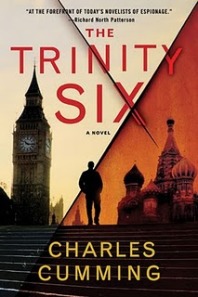Shadows of Berlin by Trevor Scott
 Monday, December 12, 2011 at 2:13PM
Monday, December 12, 2011 at 2:13PM 
Published by Dorchester on March 1, 2012
The cold war warms up in this reasonably entertaining spy novel. Nick Logan is a retired CIA officer, now working as a private security consultant. The story opens with Logan’s discharge from an Austrian hospital, having survived an assassination attempt that killed his girlfriend. Logan soon learns that an unknown source has issued a contract on his life. Meanwhile, five bodies, all shot through the eye, have been pulled out of the Spree River, leaving Gustav Vogler, Berlin’s chief homicide inspector, to wonder why apparently unrelated victims were targeted by a professional killer -- and leaving the reader to wonder about the connection between those killings and the attempts to murder Logan.
Apart from the dead girlfriend, three women figure into the plot. Alexandra Schulz is a German intelligence officer to whom Logan has always felt an attraction. Tatyana Petrova, an Army General and highly placed officer in Russia’s SVR, has a professional interest in Logan and in the growing body count in Berlin. Logan’s ex-wife, Tina Carducci, still with the CIA, jets off to Austria to watch Logan’s back -- if she can find him. Fortunately for her, tracking Logan isn’t difficult, given his propensity to become involved in gunfights as he makes his way across Europe.
Trevor Scott’s writing is sometimes formulaic; his style is lackluster. He tends to overuse certain phrases. The novel’s several sex scenes, in particular, seem like Xerox copies of each other. The women seem to have been cloned from a single source; there’s little to differentiate one from another. Scott’s attempts to inject humor are mostly unsuccessful.
On the other hand, the novel moves at the quick pace a reader expects from a thriller. Intermittent action sequences add excitement to the story. Although I wasn’t motivated to keep reading by stirring prose or unconventional characters, I nonetheless kept reading. I attribute that to Scott’s ability to craft a tight plot that kept me guessing without becoming unduly convoluted. There is, in fact, a nifty twist that brings the novel’s leading characters together for roughly the same purpose toward the novel’s end, igniting a perfect storm of intrigue. Scott’s deft plotting largely overcomes his pedestrian writing style, making Shadows of Berlin a worthy addition to the second-tier shelf of espionage novels.
RECOMMENDED
 TChris |
TChris |  Post a Comment |
Post a Comment |  Recent Release,
Recent Release,  Trevor Scott,
Trevor Scott,  spy in
spy in  Thriller
Thriller 


